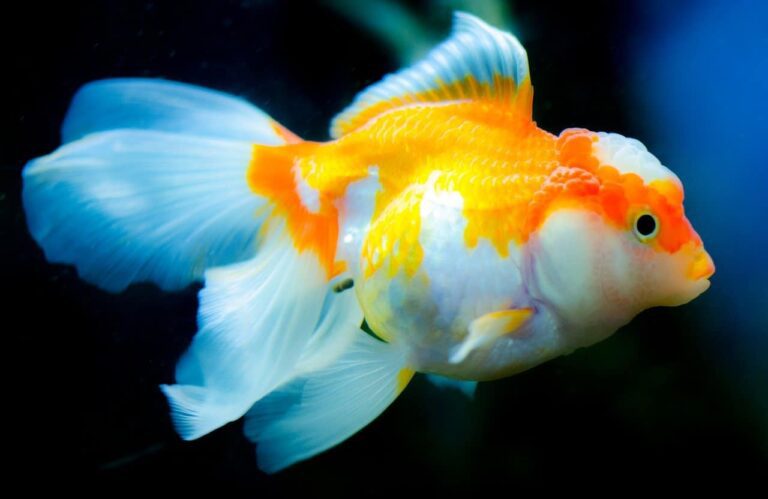Betta fish, also known as Siamese Fighting Fish, is one of the most sought-after aquarium fishes, particularly for the new fish keepers. Betta fish looks elegant with its colorful body, beautiful fin, and tail design, as well as majestic movements in the water. Since betta fish is easy to rear up, and they have a strong personality, fish owners quickly establish a strong bond with them.
So, naturally, the owners want their Betta to live long and sought the answer for how long do Betta fish live. In captivity, a betta fish may live for around three years. Still, there are reports that some lucky betta has a lifespan of approximately seven to ten years. But these fish have undergone extreme care and effort for such an unthinkable lifespan.
However, in the wilderness, a betta has a slightly shorter lifespan compared to the captive ones. So let’s check the facts and factors affecting betta life in the captivity and wilderness. And lastly, we have five exclusive tips to increase fish longevity.
How Long Do Betta Fish Live in Captivity?

In a captive state, either in a fish tank or in an aquarium, the average lifespan of betta fish is three years, if you properly take care of it.
Nonetheless, there’s a twist in the expected longevity of the betta fish. A betta fish in your aquarium will rarely live up to three years, although it is an expected lifespan. The secret lies in the betta selling guideline followed by the pet stores owners.
Pet shops will sell a betta fish to you when it is around ten to twelve months old. It happens because male betta fish starts growing their colorful representation and eye-catchy fins and tails that attract the fish keepers. However, shop keepers will sell a slightly younger female betta. So, these will live longer in captivity than the male counterparts.
So, here’s the deal.
Since betta fish will be sold anywhere between six months to twelve months old, you have to subtract this to get the accurate lifespan in your tanks. And this expected longevity is around two to two and a half years.
Nevertheless, with proper care, Betta may live around three to five years, even in captivity. (We have discussed the ways to improve betta lifespan in the latter half of the article)
The Oldest Betta
Although there’s no official record of the longest living Betta on the planet, we have heard people boasting of their Betta living up to eight to ten years in an aquarium. One of my internet friends living in Japan has a betta, which he claims is seven years old now.
He maintains the fish like anything else, and luckily, he shared the caring tips for the Betta. I also talked with some fish keepers who have Betta in their aquariums living about four years now. I have compiled their suggestions on betta care for your convenience.
But before that, why not see how long a betta can live in the wilderness?
Betta Lifespan in the Wilderness
In the wilderness, the average lifespan of a betta fish is around two years. It is slightly shorter than the captive condition. And there’s no surprise to it.
Bettas in fish tanks get a healthy diet with the least effort and not prone to any potential dangers. It increases their longevity in the containers or aquariums. Sadly, this isn’t the case in nature.
In fact, IUCN has enlisted Betta fish in the red list for vulnerable and threatened fish species. They have urged people and different governments to take immediate initiatives for betta safety. There are several reasons for Betta’s having a shorter life in natural habitats.
These are-
- In ponds, lakes, or rivers, the fighting between two male Bettas will often lead to the death of one. So, the frequency of the fight drastically reduces fish longevity.
- Often they will be a natural food source for the bigger species in the water bodies.
- The natural water bodies are vulnerable to pollutants that also cause the early death of this beautiful creature.
- Destruction of the natural habitat and food sources also cause the immature death of Betta.
Five Exclusive Tips to Increase Betta Lifespan in the Captivity
I have already told you that fish keepers will often build a strong bond with the betta fish. So, it is tough for them to accept the departure of the fish. Hence, betta fish owners want to maximize the lifespan of their loved fish.
Here are five exclusive and proven tips that will increase the betta longevity significantly.
Buy a young and healthy betta
The best you could do is to buy a younger betta fish from the LFS. You can ask the shop owner to know about the betta age. Alternatively, you can follow the tip mentioned below to identify the betta age-
- Younger and juvenile Betta will be smaller in size.
- If the Betta already has a long, beautiful, flowing fin, it is more likely to be older than one year.
- Older Bettas will have wear and tear on their fins and tails.
After you have determined the age, focus on the health of the betta fish. The easiest way is to purchase the fish from a reputed and trustworthy shop. However, you can also check the fish health on your own.
Buy a betta with the following indicators –
- Bright colored, particularly for the male ones.
- Clear eyes
- No wear and tear in the fins.
- See for the fish response in the tank by placing your hand in the water.
These sings are an indication that the Betta is healthy.
Don’t buy the Betta, if you see any of these following signs –
- Pale and dull-colored
- Bulged eyes
- Wear and tear in the fins and tails.
- Scratches in other parts of the body.
These are the indicator of a poorly nourished betta, and so, it won’t live long.
Make sure the tank size and environment is appropriate
The next big thing to increase the betta lifespan is to place it in a sizeable tank or aquarium and maintain a healthy environment. Check this article to know more about our reviews on the best betta fish tanks.
We understand that when you buy a betta, the small cup holder or jar with only 1 gallon of water may prompt you to think that the fish may live in a small aquarium. This is, unfortunately, far from the truth. Another myth that circles the Betta is that it is a shallow water fish; this isn’t true either.
So, here’s the pick:
- For a single betta, you need to have at least a 5 gallon tank.
- You will need a larger tank if you plan to introduce a female betta in the same container.
- And if you want to rear multiple Betta together (we don’t recommend it), the tank needs to be capable of holding 15-25 gallons of water.
Besides the size of the tank, you will also need to create a healthy and appropriate environment for the Betta to thrive in the water.
You may include some plants in the aquarium to improve the amount of oxygen for the fish. This inclusion will help the fish breathe fresh oxygen on the surface and help Betta hide during the confrontation with another male.
There are several plants suitable for betta fish tanks. However, I found three plants most favorable for the purpose –
Java moss: It is easy to take care and provides a good aquascape for the betta fish.
Anacharis: It is known for its resilience and fast growth.
Java Fern: With an average right inch height, it suits the medium tanks perfectly.
There are other ornamental plants as well that you may consider for the aquariums. We will bring a complete list soon.
Keep the male Betta, if possible, separated
Male Betta is notoriously known for its aggression and territorial dominance. So, when put together in the same tank, these fishes will thrive for their regional supremacy.
And you know it’s unavoidable consequences, right?
They will most likely engage in a brutal fight, injuring the tails, gills, and fins of each other. While these injuries will drastically reduce their lifespan, the fight sometimes may even cause the immediate death of one fish.
It happens because, since the early 19th century, betta fish were selectively bred to develop as a fighting fish and entertain through brutal battles.
So, the best thing you could do for your loving Betta is to keep them separated. You may arrange multiple fish tanks or accommodate them in a larger container. The large tanks will allow them to set their territory and live peacefully.
Know more about betta fish tank mates.
A healthy diet increases immunity and Betta Fish lifespan
Just like the human, betta lifespan will largely depend on its diet. A proper diet will also help the fish having a reasonable growth rate and retain the color, for which the fish is famous mostly.
In the wilderness, betta fish is carnivorous and eat anything they get. However, these fish have developed a particular liking for live foods, which may be tough for you to replicate in the tank or aquarium.
But, there are ways you can give a healthy diet to the Betta fish.
For this, you need to choose a diet with protein and fat. While most fish keepers will choose flake food, pellet, or frozen food, we recommend using homemade Betta fish food if possible. Ingredients like brine shrimp and bloodworms aren’t so expensive and make a perfect blend for the betta fish.
As you feed the fish, also be careful not to overfeed it. Overeating might cause bloating that affects the fish swim bladder. Sometimes, it may lead to an immature death. Sadly, things like this aren’t uncommon!
Check our reviews on the best betta foods that are available in the market. Also know more about the symptoms that a dying betta shows.
Use water filer and optimal heater
I have heard many fish keepers saying that bettas can live in dirty water and don’t need any external heating. How wrong they are!
I understand that the myth circulated from the betta origin in Thailand, where the fish thrives in rice paddies.
But the reality is simply the opposite. To increase the lifespan of Betta, it must live in clean water. So, you must add a water filter to wipe off the debris from the tank. It also helps to eliminate ammonia and nitrites from the tank.
Next, use a heater to keep the water temperature between 75°F-80°F. This way, the fish will feel homely and show less aggression.
And lastly, change the water periodically so that ammonia and nitrates don’t build up in the water. Remember, the build-up of such gases will cause breathing problems for the fish.
Wrapping Up
So here’s the summary….
A betta will live approximately two to three years in the aquarium after you have brought it from your LFS. The younger Betta you buy, the more it will live in the aquarium. In the natural habitat, a betta will live slightly less than in captivity.
However, with the utmost care, you can increase the fish lifespan quite significantly. These include choosing the right size and environment for the tank, giving the proper fish diet, keeping the water clean, and maintaining the water temperature.
Once you can do all these and also the Betta doesn’t engage in brutal fights, you can expect it to accompany you for three to seven years.
Rejoice!






